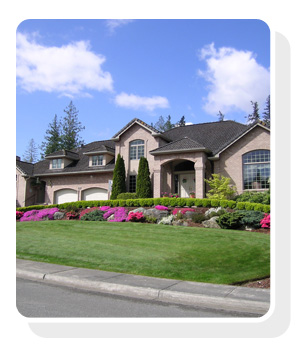Earthquake Insurance
 Earthquake Insurance
Earthquake Insurance
What are the two most important things to know about earthquake insurance?
- Most home insurance policies do not cover earthquake damage.
- Even if you don’t live in an area where earthquakes are common, you may still need earthquake insurance.
Earthquakes have occurred in 39 states since 1900, and about 90% of Americans live in areas considered seismically active. For many of our neighbors in California, earthquake insurance can be inexpensive – contact us to find out what the costs would be for your home.
Earthquake insurance can have many options
Most homeowner, condo and rental insurance policies do not cover damage caused by an earthquake, but coverage can be purchased as an endorsement or a separate policy. You may be able to choose to purchase earthquake insurance from the same company that provides your home insurance, from a specialized earthquake insurance provider, or from an independent organization such as the California Earthquake Authority (CEA).
In all likelihood, almost the entire US would be better protected by purchasing earthquake insurance. Consider the facts:
In the West: According to the U.S. Geological Survey, there is a 70 percent probability that one or more damaging earthquakes of magnitude 6.7 or larger will strike the San Francisco Bay area during the next 30 years.
In the East: The Earthquake Education Center at Charleston Southern University claims there’s a 40 to 60 percent chance of a major earthquake somewhere in the eastern United States in the next 20 years.
In the Midwest: According to the Insurance Information Institute, there’s a 40 to 63 percent chance the New Madrid Fault (which runs through Arkansas, Kentucky, Missouri and Tennessee) region will suffer an earthquake with a 6.0 magnitude in the next 15 years.
What does earthquake insurance cover?
Earthquake insurance provides coverage if your home is damaged by an earthquake. Standard homeowner and renters policies will not cover earthquake damage. Earthquake insurance is a separate endorsement you must buy and add to your homeowner or renters policy.
An earthquake endorsement generally excludes damages or losses from floods and tidal waves – even when caused or compounded by an earthquake. However, if you experience a loss due to a landslide, settlement, mudflow, or the rising, sinking and contracting of earth, your endorsement may cover it if the damage resulted from an earthquake.
There are several options to consider when purchasing earthquake insurance, including:
- Does the policy cover only your home? Are other structures, such as garages, also included?
- Will your policy pay for the contents of your home and for additional living expenses if your home is badly damaged or destroyed?
- Are there any exclusions or limitations to coverage?
- What deductible must you pay before the insurance kicks in?
Earthquakes can happen in California – here’s how you can protect yourself
- Make sure your water heater, gas appliances, and other fixtures are fastened securely.
- Check that bookcases and furniture are secure and fastened to walls.
- Have a family emergency plan that all family members know. Designate a meeting place outside the home where family members can gather once the danger has passed.
- Designate a distant relative or friend who can serve as a point of contact and communication for you and your family members if you get separated.
- Plan ahead. Keep flashlights, batteries, and candles on hand. Have a portable radio.
- Be sure everyone in your house knows how to turn off utilities (electricity, water, and gas).
- When shopping for earthquake insurance, ask the company to help you identify possible repairs and other improvements that will make your home safer and minimize damage.
What to do when an earthquake strikes
If you are inside when an earthquake hits, stay inside and get under a heavy table or desk. Stay away from windows. Do not evacuate the building unless emergency personnel direct you to leave.
If you are outside, get away from buildings and power lines, and remember that stone and masonry facings can break loose and fall away from upper parts of buildings.
If you are in a car, stop safely away from structures, large trees, power lines, and other hazards. Stay inside the vehicle.
Keep in mind:
- Don’t use candles until gas lines are checked. Also, check throughout your home before you use certain utilities, such as water and electric, sewage connections, and even chimneys.
- Don’t tie up phone lines except to report emergencies.
- Be prepared. Remember that you will need food and water, even for the short term. Keep your family together and stay alert for aftershocks.
Earthquake insurance needs can vary significantly – talk to us today to find out how to get the best price and value on earthquake insurance for you.
